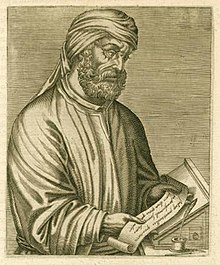And supposedly how do you know that what you posted above are not "invented doctrines"?
After the last apostle died (John) in 100 AD, a lot of false prophets appeared one of them is:
Tertullian (/tərˈtʌliən/), full name Quintus Septimius Florens Tertullianus, c. 155 – c. 240 AD, was a prolific early Christian author from Carthage in the Roman province of Africa. Of Berber origin, he was the first Christian author to produce an extensive corpus of Latin Christian literature. He also was an early Christian apologist and a polemicist against heresy, including contemporary Christian Gnosticism. Tertullian has been called "the father of Latin Christianity" and "the founder of Western theology."
Though conservative in his worldview, Tertullian originated new theological concepts and advanced the development of early Church doctrine.
He is perhaps most famous for being the first writer in Latin known to use the term trinity (Latin: trinitas). According to The Stanford Encyclopedia of Philosophy, "Tertullian's trinity [is] not a triune God, but rather a triad or group of three, with God as the founding member". A similar word had been used earlier in Greek, though Tertullian gives the oldest extant use of the terminology
as later incorporated into the Nicene Creed at the 2nd Ecumenical Council, the First Council of Constantinople in 381 AD, or as the Athanasian Creed, or both.
Other Latin formulations that first appear in his work are "three persons, one substance" as the Latin "tres personae, una substantia" (itself from the Koine Greek "treis hypostases, homoousios"). Influenced by Stoic philosophy, the "substance" of Tertullian, however, was a material substance that did not refer to a single God, but to the sharing of a portion of the substance of the Father (the only being who was fully God) with the Son and, through the Son, with the Holy Spirit. He wrote his understanding of the three members of the trinity after becoming a Montanist.
Tertullian - Wikipedia
Who is my Lord Jesus according to himself?
Let us read from a Catholic Version of the Bible:
John 8:40New Revised Standard Version Catholic Edition (NRSVCE)
but now you are trying to kill me,
a man who has told you the truth that I heard from God.
He did not say I am a man-god who told you the the truth that I heard from myself
He did not say I am god who told you the the truth that I heard from myself
That would be silly.
What did he say?
Jesus said he was a man who has told you the truth that I heard from God


